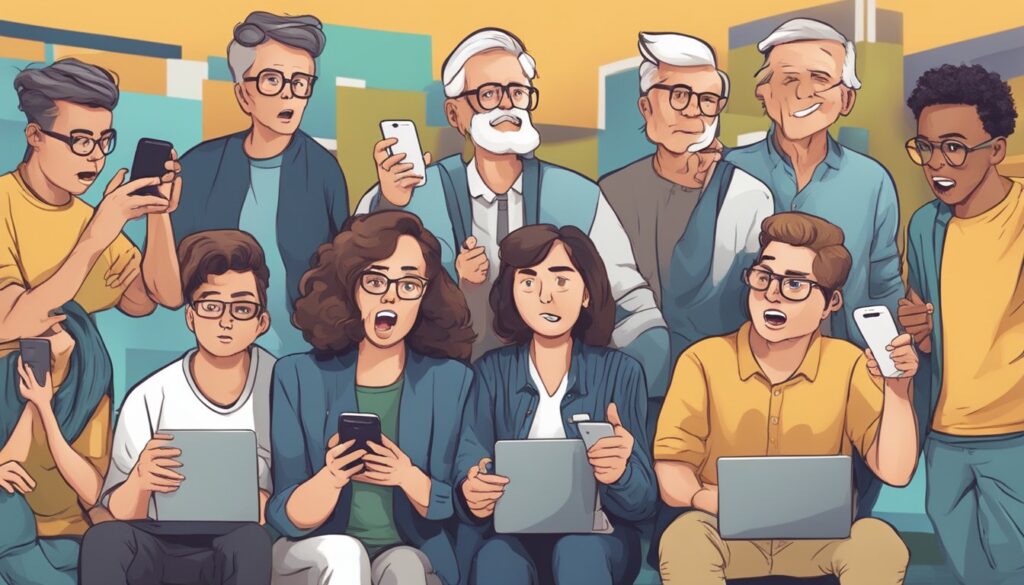Baby Boomers perceive younger generations as overly sensitive. Despite the age gap, which sees Baby Boomers around 60 to 70 years old and Gen Zers between 12 and 27, both groups share some common frustrations. A recent discussion among Gen Zers revealed their concerns about technology's overwhelming presence in everyday life and a decline in basic human courtesy.
Even though Gen Zers are often described as digital natives, having grown up with the internet and smartphones, they express discomfort with how technology dominates their lives. This raises the question of whether they will be the last age group to feel this way.
Here are some popular grievances voiced by Gen Z regarding issues perceived as typical “Boomer complaints”:
-
Return of Traditional Menus
- Many people dislike digital menus, such as QR codes. They prefer physical menus because they are more accessible.
-
Modern Cars
- Gen Zers often express frustration with the heavy use of technology in vehicles. They long for hands-on controls instead of touch screens, which they find complicated and expensive to repair.
-
Quality of Materials
- There is a belief among young adults that products today aren't built to last like those in the past. They point to older items, like 1940s appliances, that still function perfectly after decades.
-
Importance of Boredom
- Criticism surrounds the fast-paced, always-connected lifestyles of younger people. Some feel that constant activity provides no room for reflection or relaxation.
-
Sensitivity in Society
- While some appreciate decreasing tolerance of prejudice, some believe a balance is necessary. They advocate for resilience instead of victimhood.
-
Social Media Interactions
- The expectation to connect through social media is alarming to some young people. They prefer more direct forms of communication.
-
Phone Etiquette
- Gen Zers express concern that their friends are glued to their phones during social gatherings instead of engaging with one another.
-
Device Dependency
- Concerns are raised about how electronic devices affect critical thinking skills among younger students, and teachers report significant struggles in basic literacy.
-
Loud Public Spaces
- Many are irritated with loud background music in public places like restaurants, noting it forces quicker dining and a less enjoyable experience.
-
Communication Barriers
- A common frustration is the difficulty in reaching a human representative for help when dealing with customer service.
-
App Overload
- The requirement of apps for various services can be bothersome, particularly when technology needs to facilitate basic transactions.
-
Grocery Store Changes
- The lack of personal service at grocery stores, where self-checkouts and rushed bagging have replaced traditional roles, frustrates many shoppers.
-
Critique of Fashion Choices
- Some believe that younger individuals often choose inappropriate or unattractive clothing styles, affecting social norms.
-
Modern Music Standards
- Not all are fans of recent music trends; some prefer earlier music styles over contemporary hits.
-
Declining Respect
- There appears to be a feeling that societal respect has decreased. Acts of kindness or community support seem rarer than in previous decades.
-
Dress Code Discussions
- School attire is a topic of division. Some advocate for clearer dress codes to help guide proper attire among students.
-
Frustration with Health Perceptions
- There are concerns that health-related trends focus too much on technology-driven methods rather than direct human interaction or understanding.
Acknowledging these grievances sheds light on the values and conditions shaping both present-day discussions and future changes in society. The divergence in opinions reflects a larger cultural shift over time, where different generations navigate their identities, challenges, and connections with one another.
As these conversations continue, both Gen Z and Baby Boomers may need to find common ground to bridge the generational divide. By recognizing shared concerns, they can create greater understanding and collaboration as they face pressing issues like economic challenges, climate change, and societal shifts together.
Understanding these facets of the generational experience offers insights into how technology and culture evolve, shaping individuals' perspectives and interactions. The path forward involves dialogue and cooperation, allowing each generation to learn from one another and adapt to an ever-changing world.
